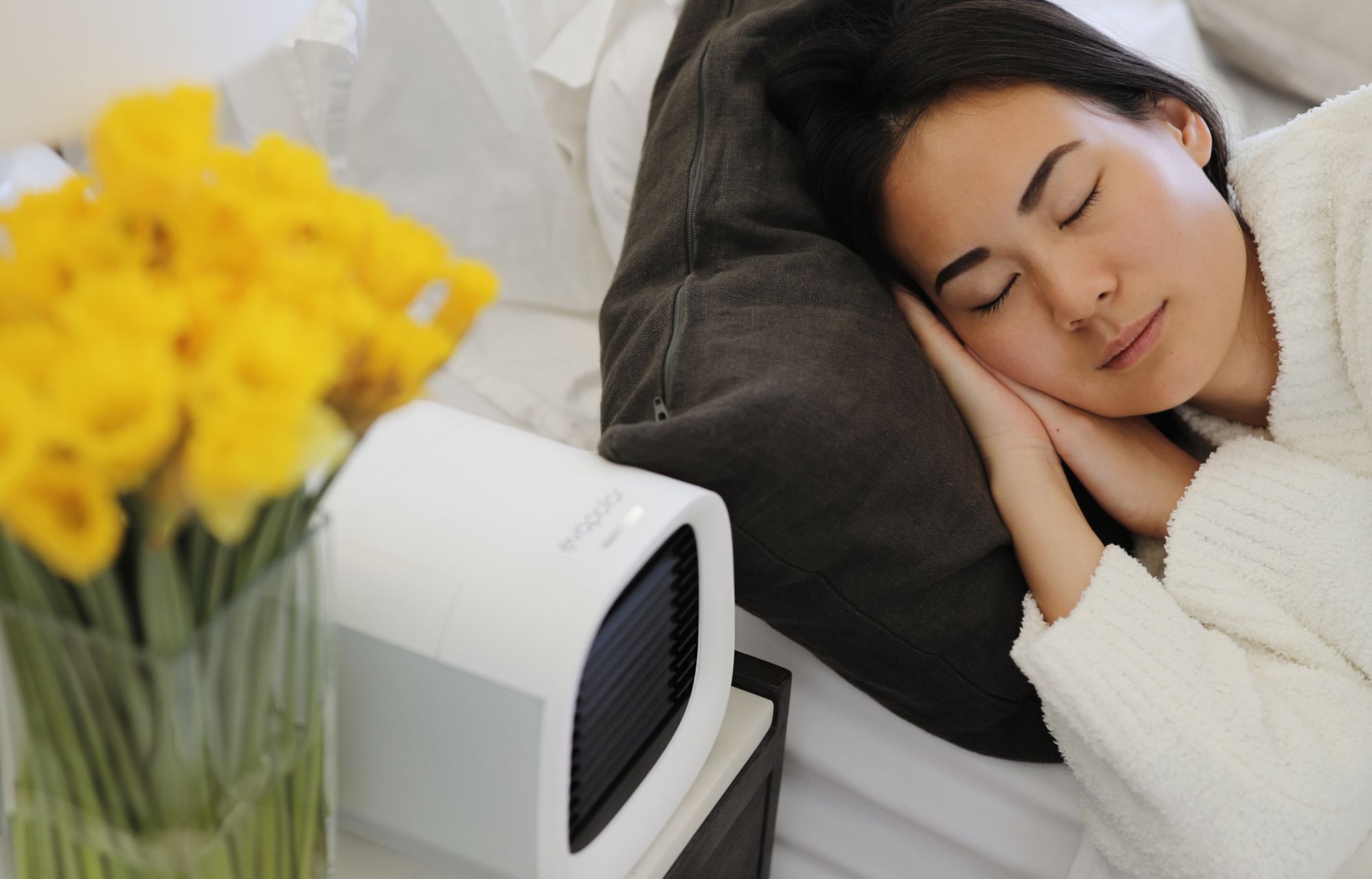Why do we feel so different with the change of seasons and what could we do about it? How does our body respond to the seasonal change? Turns out, the annual temperatures drops and spikes influence way more than just our choice of clothes.
The combination of changes in temperatures, barometric pressure and the wind can take a swing at the immune system. Our bodies like routine and stability. Change means possibility of danger, of the unknown — which is why our system can rebel a few times a year.

evaCHILL
The most effective cooling device
Unless you live somewhere like Singapore, Equator or any other country where you have summer and, well, hotter summer, chances are you have experienced the seasonal change first-handed. By the way, if you live somewhere where it is permanently hot and you experience the heat edema (swelling and water retention due to high temperatures), a simple air cooler can solve the problem and make you comfortable in your body and your surroundings. Read also how to choose portable cooler.

We have come up with several suggestions to make the seasonal transition healthy, happy and symptom-less.
1. Consult a specialist. If your overall state is more than just uncomfortable and you are having a hard time to function properly, it is best to book an appointment with a doctor. You may suffer from SAD (Seasonal Affective Disorder) — a depression that is linked to the change of seasons. In the U.S. only there are 3 million cases of SAD per year. “It typically affects females more than males and makes you feel moody, irritable and/or anxious, lowers your energy levels, makes it difficult to wake up in the morning and gives you trouble concentrating on tasks”, says Dr. Carolyn Dean.
2. Get a full blood check-up. It can be tricky to get all the microelements (vitamins and minerals) from foods, especially if you live in a place that highly depends on imported products for fruits and vegetables. Depending on the seasons, we can be missing certain elements that are vital for our proper functioning.
Iron deficiency is one of the common reasons why you can be feeling even more tired during the seasonal transition. Iron is directly related to energy and while your body needs even more of it to adjust to the pressure and temperature changes, you will be feeling literally under the weather.
3. Pick the right supplements with a professional. This one goes together with the blood check-up. However, some deficiencies can’t be seen in the blood test results and yet, they have a huge influence on us. For example, the impact of vitamin D synthesis in our skin is critical during autumn and winter. A doctor will help you pick just what you need based on where you live, your physiology, needs and lifestyle. Read also: How to hydrate your skin from the inside and from the outside
4. Adjust the circadian rhythms. Or, more simply, take care of your beauty sleep. We actually want to start calling it ‘health sleep’ because a good sleeping schedule goes way beyond benefits in the beauty department!

Longer days and sunshine can decrease the production of melatonin — the hormone that regulates the sleep/wake cycle. For a proper deep sleep, you need a fully dark room and no sounds — it can be hard to achieve when the sun sets at 10PM (like in France in summer) and the sunrise is at 6AM or even before!
If blinds are not an option, go for a sleep mask that blocks out light. However, just the mask won’t do the trick. You need to keep the room at a chill temperature for best sleep quality and make sure you go to bed before 11PM. Why? Because our bodies only produce melatonin during deep sleep until 1AM — no matter how hard you try afterwards, the quality of sleep and its effects will be drastically lower.

5. Exercise. We promise we won’t give you yet another talk on how moving your body is good for your health and overall immunity! What we would like to emphasize is discipline that comes with exercise. The thing is, our bodies love routine — which also explains the hard times of adjusting to the seasonal change. A physical discipline is something you can carry with you throughout seasons and reinforce yourself against any pressure or temperature highs and lows.
At the moment, the Northern hemisphere is welcoming the warmer months and we would like to give extra attention on the unexpected yet proven impact that high temperatures can have on our bodies. We highly recommend keeping your indoor temperature cool in order to avoid it.
· Hot weather can make your heart beat faster. When the temperature goes up, so does the size of your blood vessels, which makes your heart work twice as hard.
· Dehydration is more common in summer. Together with an increased heartbeat, it can have a drastic effect on your cardiovascular system. Drink those 8 glasses/day and keep the temperature low.
· Summer months can be hard on your lungs. Your heart needs to beat faster and, as a result, your system needs more oxygen. This can be especially challenging for people with respiratory problems —and it is not a guess, the emergency visits due to breathing issues spike in hot months.
· Despite all the sunshine and great vibes, summer can actually cause intense fatigue. Our blood vessels get wider and looser, which can lead to lower blood pressure.
· Varicose veins symptoms can worsen in warm weather due to the impact high temperatures have on our veins.
· Hot weather can cause acne breakouts. Sweaty on the one hand and dehydrated on the other hand, our skin takes a huge toll in summer. Plus, the permanent danger from the UV rays doesn’t make it easier! Read also: Hot Weather Safety Tips
One of the main lifehacks on adjusting to a weather change is keeping the indoors temperature pretty much the same all year long. Of course, it hugely depends on where you live, the central heating in your building, the humidity, etc. However, you can still make the transition smoother with an evaporative air cooler. Whether you are getting used to a life overseas or simply preparing for a heat wave where you are, a simple and powerful device will get the job done.



